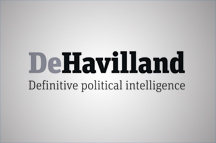 This has been the conference season that no-one expected, with a Prime Minister who everyone thought was unlikely to win an election, a Leader of the Opposition who was supposed to be the token left-wing candidate and a Liberal Democrat party buoyant after near electoral annihilation.
This has been the conference season that no-one expected, with a Prime Minister who everyone thought was unlikely to win an election, a Leader of the Opposition who was supposed to be the token left-wing candidate and a Liberal Democrat party buoyant after near electoral annihilation.
The season began in Bournemouth, where Liberal Democrat Leader Tim Farron tried to tackle the challenge of having been outflanked by a Labour Party that was supposed to stick to the centre ground.
Instead, Mr Farron presented his party as the only credible alternative to the Conservatives, challenging the Prime Minister on issues such as free school meals and the refugee crisis but also chiding the Labour Party for its “wish to abandon serious politics, serious economics”.

The Liberal Democrats would “be serious about power”, he concluded.
However, speaking to my DeHavilland colleagues who attended the conference, it seemed that many within the party may not share his ambitions. They spoke instead of an unusual sense of freedom among the conference delegates, who seemed to relish the opportunity to once again be a party unfettered by the chains of being in government.
The Liberal Democrats were arguably once seen as the party of ideological purity who left pragmatism to others. While Mr Farron may plan to be the credible challenge to the Government, it may be difficult for him to present his party as a believable alternative, given the attitude of his members and the clipping of his political wings.
The conference to watch this season was supposed to be the Labour Party’s, with rumours only a few weeks before of possible coups against the leader and suggestions that parts of the party were barely on speaking terms.
 Instead, the event turned out to be rather less factional. In spite of an early tumble as Mr Corbyn’s attempts to change the party’s policy on Trident were blocked on the conference floor, the overall mood of the conference seemed more conciliatory and cooperative.
Instead, the event turned out to be rather less factional. In spite of an early tumble as Mr Corbyn’s attempts to change the party’s policy on Trident were blocked on the conference floor, the overall mood of the conference seemed more conciliatory and cooperative.
Having gone into the conference with threats of defections looming over his head, Mr Corbyn can said to have succeeded in presenting a picture of a party that was at least willing to talk about its disagreements.
The event also allowed his Shadow Chancellor to present a vision of anti-austerity politics, and while much more will need to be done for the party to be regarded as economically credible, the conference set the tone this challenge would now take.
While Labour was focused on change, the Conservatives expounded the virtues of continuity.
Chancellor George Osborne once again reiterated his aim of tackling the deficit, as well as announcing further economic devolution in the form of business rates.
“Security, stability, opportunity” were the watchwords in the conference speeches, but the focus was very much on “security”.
“Britain-hating” Jeremy Corbyn was lambasted for his stance on economics, foreign affairs and terrorism in speeches that were criticised by some but dovetailed neatly with much of the media coverage surrounding the Labour Leader.
Far from resting on its laurels, the Conservative Government appears determined to push forwards with its vision of the future.
With the conference season over and MPs returning to Westminster, the battleground will once again be the floor of the House of Commons, as Labour attempts to challenge the Government’s steamrolling majority.
DeHavilland has covered hundreds of fringe events and main speeches at the four main party conferences. Order a copy of their comprehensive conference briefing online here.












